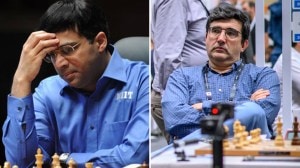Cause of hypertension may lie in the genes
A rare genetic mutation may play a role in propagating hypertension,researchers say.
A rare genetic mutation may play a role in propagating hypertension,researchers say.
Studying the mitochondrial DNA of 13 members of a hypertensive family some of them also suffer from coronary artery disease and diabetes from Coimbatore,the researchers found novel mutations and an extremely rare deletion of 50 nucleotide pairs (structural units of DNA,also called base pairs) across three generations.
The study was conducted by a team from the School of Biotechnology and Genetic Engineering,Bharathiar University,Coimbatore; the Centre for Cellular and Molecular Biology,Hyderabad; and the Department of Advanced Zoology and Biotechnology,Loyola College,Chennai.
This is the first time a 50 bp deletion has been reported in Indians. We scanned over 17,000 mitochondrial genomes available to us through the Indian genome project,and found only this one family that exhibits this mutation, said Kumarasamy Thangaraj,a co-author of the study and from CCMB,Hyderabad.
In a paper to be published in the journal Mitochondrion,the authors predict that the mtDNA mutations might be responsible for the hypertension.
Mitochondrial DNA is different from nuclear DNA,commonly studied for genetic variables affecting human health. The genome contained in a cells mitochondria organelles responsible for energy production is much smaller than the nuclear genome and was,till recently,not thought to be directly implicated in most diseases.
We are trying to understand the role of the mitochondrial genome in diseases. From our studies at CCMB so far,we can tell there is a definite role,although the correlation between mutations and diseases often varies with race and other factors. We have found at least four or five clinical conditions neuromuscular disease,infertility,etc associated with mitochondrial mutations, Thangaraj said.
Mitochondrial genomes are useful in studying maternal lineage. In the case of the hypertensive family,all 13 subjects under study exhibited the rare 50 bp deletion,passed down maternally. Their genomes also showed two novel mutations that interfered with amino acids. These mutations may terminate protein synthesis,thus creating an abnormal phenotype, said Thangaraj.
The deletion itself was found to occur in a region that contains replication proteins and thus,might have affected DNA replication,said Santhini Elango,lead author of the study and a postdoctoral researcher from Bharathiar University who has now joined the Indian Institute of Science,Bangalore.
It is difficult to explain how mitochondrial mutations occur,said Thangaraj. Unlike in the nuclear genome,there is no recombination of homologous chromosomes,so we cant say how mutations occur, he said.
Since mitochondrial and nuclear DNA crosstalk,the researchers also studied variations in the polymerase gamma gene coded by the nuclear genome responsible for mitochondrial DNA replication. Here,they found 14 variants that they said might be responsible for some of the mtDNA mutations seen in the family.
Functional analysis of the results has to be carried out to yield generic results from these novel mutations, said Elango.





- 01
- 02
- 03
- 04
- 05


























